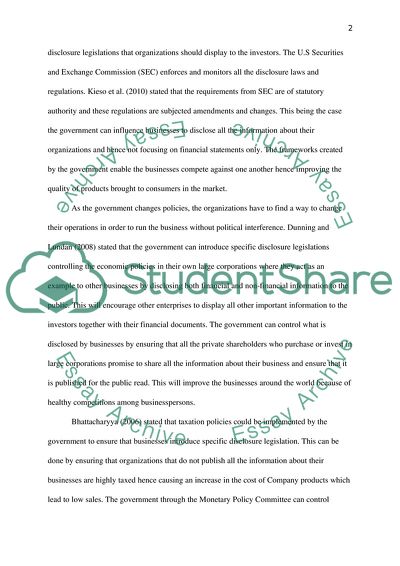Cite this document
(Does increased disclosure of non-financial measures lead to economic Coursework, n.d.)
Does increased disclosure of non-financial measures lead to economic Coursework. https://studentshare.org/finance-accounting/1847282-does-increased-disclosure-of-non-financial-measures-lead-to-economic-benefit
Does increased disclosure of non-financial measures lead to economic Coursework. https://studentshare.org/finance-accounting/1847282-does-increased-disclosure-of-non-financial-measures-lead-to-economic-benefit
(Does Increased Disclosure of Non-Financial Measures Lead to Economic Coursework)
Does Increased Disclosure of Non-Financial Measures Lead to Economic Coursework. https://studentshare.org/finance-accounting/1847282-does-increased-disclosure-of-non-financial-measures-lead-to-economic-benefit.
Does Increased Disclosure of Non-Financial Measures Lead to Economic Coursework. https://studentshare.org/finance-accounting/1847282-does-increased-disclosure-of-non-financial-measures-lead-to-economic-benefit.
“Does Increased Disclosure of Non-Financial Measures Lead to Economic Coursework”. https://studentshare.org/finance-accounting/1847282-does-increased-disclosure-of-non-financial-measures-lead-to-economic-benefit.


